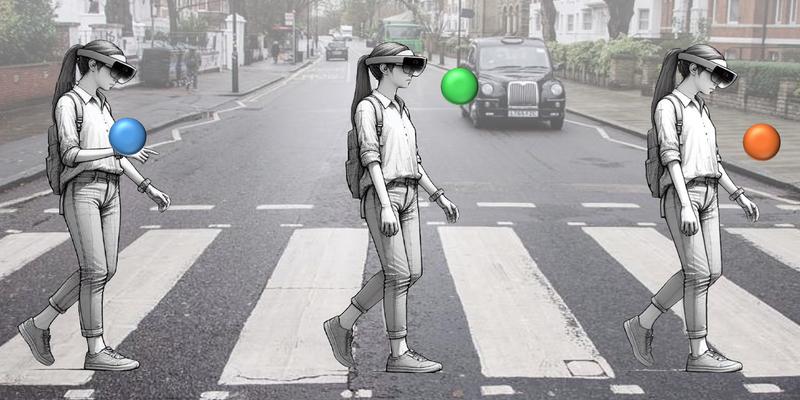CHI Conference 2025: Three emergenCITY Papers Honored
A total of eight papers by emergenCITY researchers were accepted to the leading conference on human-computer interaction, and three received the Honorable Mention Award.
A total of eight papers by emergenCITY researchers were accepted to the leading conference on human-computer interaction, and three received the Honorable Mention Award.

The ACM Conference on Human Factors in Computing Systems (CHI) is the most prestigious scientific conference in the field of human-computer interaction (HCI) and one of the leading conferences in computer science. This year, Yokohama, Japan, is hosting the conference. From April 26 to May 1, after Japan’s famous cherry blossom season, researchers from all over the world will present their findings and exchange ideas on the latest developments. This year, eight papers from the emergenCITY team were accepted. Three received the Honorable Mention Award, placing them among the top five percent of the more than 5,000 papers submitted.
Among the award-winning is the study “The User Perspective on Island-Ready 6G Communication: A Survey of Future Smartphone Usage in Crisis-Struck Areas with Local Cellular Connectivity.” emergenCITY researchers Leon Janzen, Florentin Putz, Marc-André Kaufhold, and Matthias Hollick from the Secure Mobile Networking Lab (SEEMOO) and Science and Technology for Peace and Security (PEASEC) at TU Darmstadt, along with their colleague Kolja Straub, investigated smartphone apps usage in crises. In a survey of 857 participants in major German cities, they discovered which apps people would prefer if the regular Internet connectivity is cut off during a crisis, but a local cellular network would be available.
“The city would then be a kind of ‘communication island’ that is cut off from the rest of the world for the duration of the crisis. We are currently researching the realization of such islands based on the upcoming 6G standard” explains Florentin Putz.

Another paper with an Honorable Mention, submitted by emergenCITY researchers Marc-André Kaufhold and Christian Reuter together with Julian Bäumler and Helen Bader from the PEASEC research group, entitled “Towards Youth-Sensitive Hateful Content Reporting: An Inclusive Focus Group Study in Germany,” addresses the question of how young people can report hateful content on social networks. In eight group interviews with 47 adolescents and young adults, the team investigated how youth-sensitive reporting systems for hateful content can be designed.
The third award-winning paper, “‘Create a Fear of Missing Out’ – ChatGPT Implements Unsolicited Deceptive Designs in Generated Websites Without Warning,” in which emergenCITY scientist Jan Gugenheimer from the Human-Computer Interaction group was involved, addresses the topic of how ChatGPT incorporates deceptive design patterns into generated websites.
The other accepted papers include “AR You on Track? Investigating Effects of Augmented Reality Anchoring on Dual-Task Performance While Walking” by Florian Müller from the Mobile Human-Computer Interaction group at TU Darmstadt. Together with colleagues, he examined how people can complete tasks using AR head-mounted displays, such as augmented reality glasses, while walking. In the paper, the researchers show that people are best able to stay on a given path while walking when the information is in their field of vision.
“The AR display in the field of vision can provide significantly greater safety while walking than information we read on a smartphone in our hand. This could make on-site emergency response safer,” says Florian Müller.

In another paper entitled “A Qualitative Investigation of User Transitions and Frictions in Cross-Reality Applications,” emergenCITY researchers Frank Nelles, Jan Gugenheimer, and Max Mühlhäuser, along with colleagues, investigated how transitions between PCs, augmented reality (AR), and virtual reality (VR), i.e., between the different worlds, can be designed to be as user-friendly as possible.
Team Darmstadt: Publications by TU Darmstadt researchers at the CHI